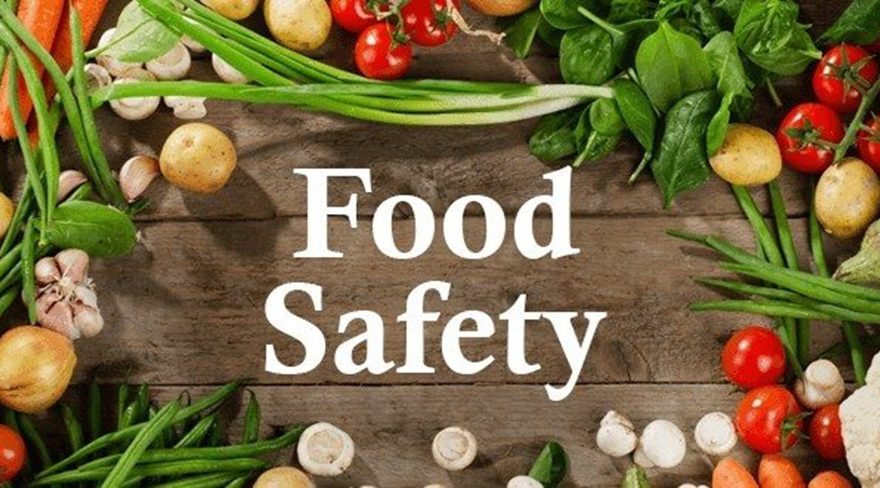
According to the World Health Organization (WHO) report, access to sufficient amounts of safe and nutritious food is key to sustaining life and promoting good health. Unsafe food containing harmful bacteria, viruses, parasites or chemical substances causes more than 200 diseases, ranging from diarrhea to cancers. It also creates a vicious cycle of disease and malnutrition, particularly affecting infants, young children, elderly and the sick. Good collaboration between governments, producers and consumers is needed to help ensure food safety and stronger food systems.
Apparently, foodborne illnesses are usually infectious or toxic in nature and caused by bacteria, viruses, parasites or chemical substances entering the body through contaminated food. Chemical contamination can lead to acute poisoning or long-term diseases, such as cancer. Many foodborne diseases may lead to long-lasting disability and death.
Recently, new research, conducted by six food safety research projects, has revealed the health and economic impacts of foodborne diseases in Ethiopia, as well as the challenges and opportunities for improving food safety in the country. The research solely depicts the impact of foodborne diseases in Ethiopia and presented on a workshop held at the International Livestock Research Institute (ILRI) Addis Ababa campus.
On the occasion, experts in the field said that the health and economic impacts of foodborne diseases in milk, dairy products, meat, and tomato in Ethiopia require coordinated efforts to address the problem and improve public health. The Ethiopian National One Health Steering Committee was also launched the one health national food safety technical working group which will serve as a platform to exchange information on food safety in the country and discuss the evidence that informs how to improve food safety.
Researcher on Food Safety and Professor of Addis Ababa University Kebede Amenu told The Ethiopian Herald that foodborne diseases are estimated to cause a loss of 723 million USD annually which is close to 1 percent of the country’s total GDP.
As to him, the public gives low attention to food safety; and the habit of poor hygiene remains a challenge to ensure food safety in the country. Following this, numerous citizens are exposed to unnecessary economic loss during illness, he said.
Increased efforts to reduce foodborne illness will improve public health and the economy of the country, he recommended. “If it is not safe, it is not food. Ensuring food safety should be given attention parallel with ensuring food security. Food safety is not an assignment left for some individuals or organizations, it is a shared responsibility of all,” he said.
According to him, the research identified some of the critical knowledge gaps and research priorities for food safety in Ethiopia, such as the need for more investment from public and private sectors, the key role of consumer demand and awareness in driving improvements in food quality, and the need to use innovative tools and approaches to enhance food safety.
Many studies found high levels of bacterial pathogen contamination in different food items. Ethiopian stakeholders ranked twelve foodborne pathogens as the most significant public health concerns based on burden of diseases estimates. Stakeholders then prioritized critical control points in four food chains that would contribute most to preventing burdens in particular deaths.
On his part, Ethiopian Food and Drug Authority Technical Advisor Wondafrash Abera said that the country has endorsed a food and nutrition policy, devised national food and nutrition strategy, as well as laws and directives on food safety. The Ethiopian Standards Agency is also doing its level best towards ensuring food safety through limiting the impact of processed and semi-processed food products, he added.
According to him, the Ministry of Health (MoH), Ministry of Agriculture (MoA), Ministry of Industry (MoI), Ministry of Trade and Regional Integration (MoTRI), among others are working closely to curb the impact of lack of food safety in the country.
Moreover, more attention should be given to ensuring food safety through excelling coordination and collaboration, strengthening food safety control systems, improving public awareness, and creating food traceability systems, he recommended.
Food Safety Researcher from USA Barbara Kowalcyk said that more than 420 deaths occur annually in the world due to foodborne illness. She has lost her son and founded a foundation to prevent deaths from lack of food safety. She believes that foodborne diseases have a profound impact on children, their family, their community and the entire society.
“We have been working hard for the past five years exploring how to ensure food safety systems in Ethiopia. There is a willingness and readiness to strategizing food safety in Ethiopia which is a very promising move,” she stressed.
The 2019 World Bank report on the economic burden of foodborne diseases indicated that the total productivity loss associated with foodborne disease in low- and middle-income countries was estimated at 95.2 billion USD per year, and the annual cost of treating foodborne illnesses is estimated at 15 billion USD.
Accordingly, the burden of foodborne diseases to public health and to economies has often been underestimated due to underreporting and difficulty to establish causal relationships between food contamination and resulting illness or death.
The 2015 WHO report on the estimates of the global burden of foodborne diseases presented the first-ever estimates of disease burden caused by 31 foodborne agents (bacteria, viruses, parasites, toxins and chemicals) at global and sub-regional level, highlighting that more than 600 million cases of foodborne illnesses and 420 000 deaths could occur in a year.
The burden of foodborne diseases falls disproportionately on groups in vulnerable situations and especially on children under 5, with the highest burden in low- and middle-income countries.
BY TEWODROS KASSA
The Ethiopian Herald November 5/2023





